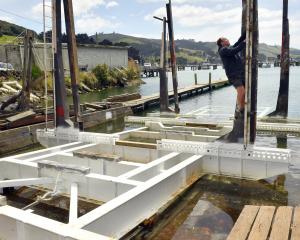This time, the Government will front-end book-build the initial public offering - meaning investors will know the price before they take up the offer - in a similar way to the successful IPOs last year of Synlait, SLI Systems and Wynyard. The Government has also reduced its expectations for demand, saying it expected to sell between 30% and 49% of Genesis, compared with 49% of Mighty River Power and Meridian.
Finance Minister Bill English said when the Government announced the share offer programme nearly three years ago, it said it would sell up to 49% of those companies, subject to market conditions.
''Our initial advice is that a smaller Genesis offer could increase price tension in the front-end book-build by offering fewer shares to more bidders.
''But we will not know that until we further test demand in the market, where investors now have a wider choice of several energy companies. Our aim is to set a fair market price that works for both taxpayers and investors.''
The Government would also offer loyalty bonus shares to eligible New Zealand retail investors in Genesis, as it did with Mighty River, he said. The quantity of bonus shares and the loyalty term would be announced at the start of the share offer.
State Owned Enterprises Minister Tony Ryall said the book-build process allowed all major sharebroking firms to take part alongside New Zealand and international institutions. The company would retain at least 85% New Zealand ownership.
The Government would not offer Genesis shares to United States investors.
''This decision removes restrictions on the way the Crown, the company and its advisers are able to provide information to New Zealand retail investors and will help improve the accessibility of this offer,'' he said.
Mr English reiterated the statement by Prime Minister John Key this week that the Genesis share offer would be the last SOE or mixed ownership company to be floated by the National-led Government.
''The Government won't be selling any more shares in SOEs or mixed ownership companies, either this term or after the election. We've achieved what we wanted to with the share offers in energy companies and Air New Zealand,'' he said.
The Government was now moving to a business-as-usual approach to SOEs. That did not preclude SOEs buying and selling assets, which they did all the time, or entering into joint ventures or other arrangements.
The remaining SOEs were small entities, natural monopolies or companies in sectors unsuitable for future share offers, Mr English said.
''What people don't realise is the value of the share sales programme is just 2% of around $250 billion of total assets owned by taxpayers. Our focus will remain on improving the management of this significant stock of assets on behalf of New Zealand taxpayers who rely on the Government to deliver high-quality public services.''
An example was taxpayers owning $17 billion of state houses, he said. About one-third of those houses were in the wrong place or were the wrong size.
The State had not kept up with the impact of changing demand in terms of the size or location of housing. Assistance for vulnerable New Zealanders in need was not as effective as it should be, Mr English said.
Labour, Green and New Zealand First MPs were critical of the way the float was being handled.
The Government had originally said it would raise between $5 billion and $7 billion from asset sales. Solid Energy, which was thought to be worth $3 billion, was withdrawn from sale after nearly collapsing from too much debt.
A Labour-Green proposed single-buyer electricity authority also spooked investors.
Genesis Energy
• Share offer to open next month.
• A loyalty bonus will be part of the incentives offered.
• New Zealanders get first opportunity to buy.
• Between 30% and 49% of the company will be sold.












